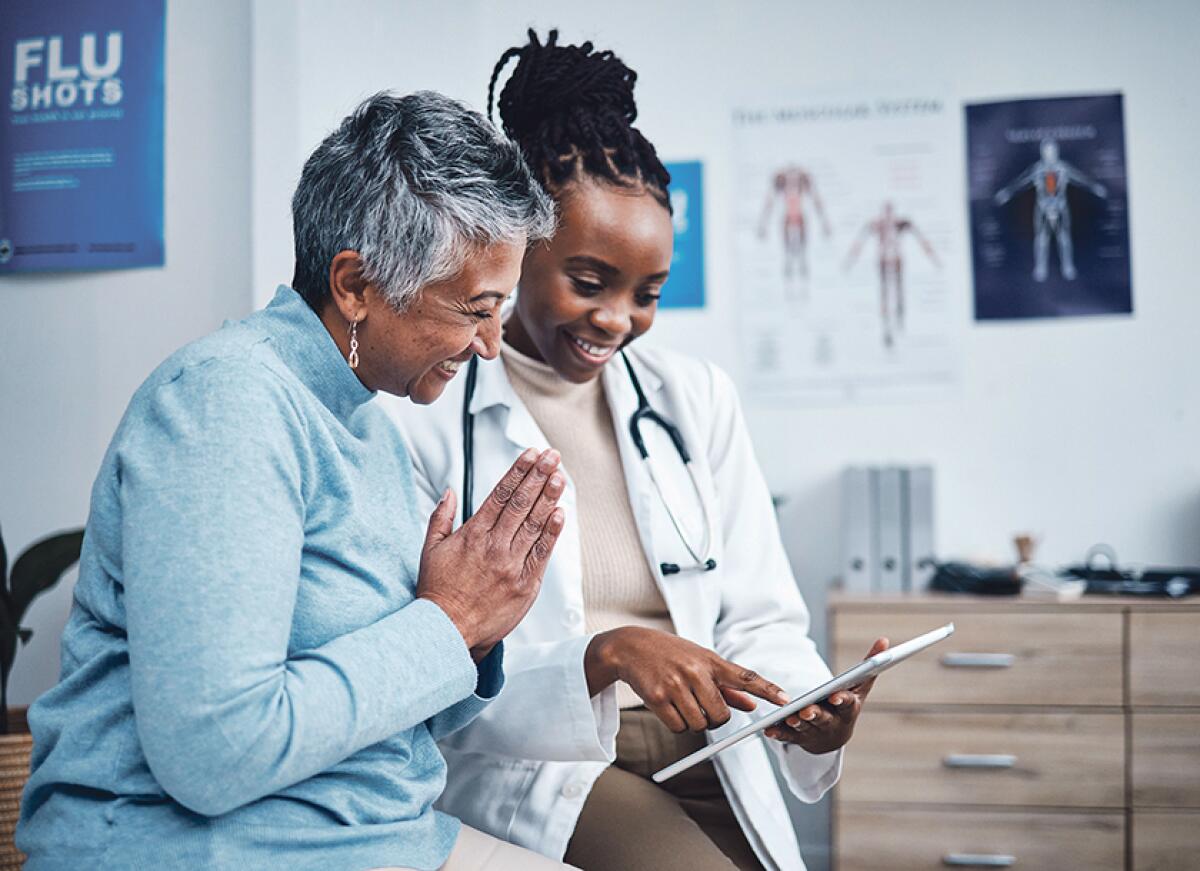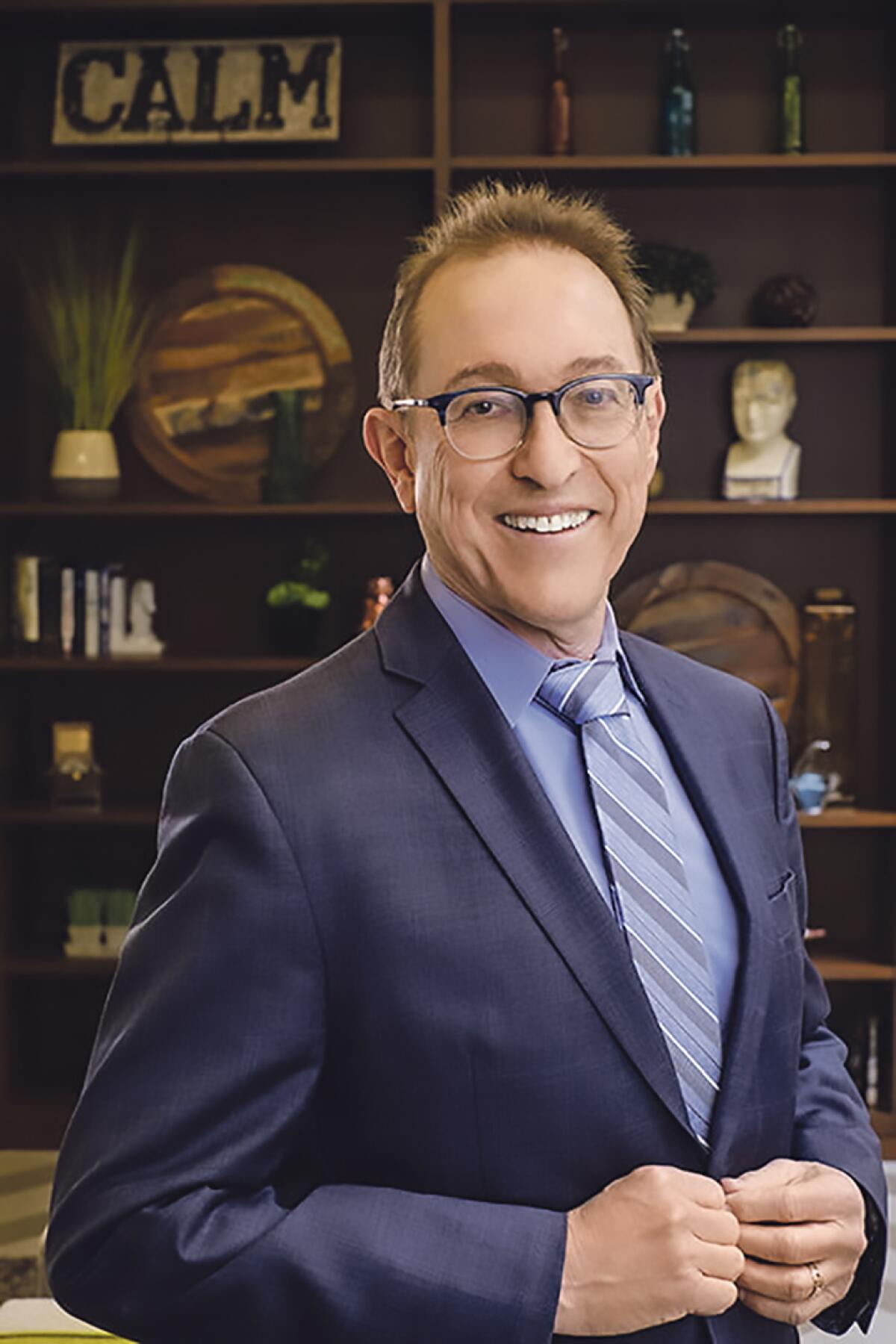For Many, the Pandemic Paused Regular Medicine – Optum’s Care Model and Physicians Welcome a Return to Normal

- Share via
Take a step outside, and take a moment to look around. People are out, gathering in groups, enjoying Southern California’s perfect spring - behaviors that are decidedly ... normal.
It’s easy to recall, too, that one, two and even three years ago was anything but normal. And it may be easy to forget how recent this normalcy is - the official end to California’s COVID-19 restrictions was declared only in February of this year.
So, while taking stock of all the positive changes, Dr. Donald Rebhun, an internal medicine doctor at Optum, has a friendly-yet-meaningful ask: Please schedule a visit with your doctor.

Dr. Rebhun, who is a Medical Director at Optum California, has worked in medicine for over three decades. Despite his administrative role, his passion remains in providing comprehensive medical care to his patients, which includes advice and empathy. “Seeing patients still is the most meaningful,” he said.
His advice, and ask, are based on the three years of disruption that we as a society have all experienced. During pandemic restrictions, medicine changed rapidly in a myriad of ways, none more disruptive than it being difficult, if not impossible, for patients to receive in-person care. While many medical offices maintain a sense of elevated caution post-pandemic, Dr. Rebhun says that doctors are ready - if not anxious - to check in with, and check up on, their patients.
“Our exams in this day and age focus not only on physical health but on mental well-being,” said Dr. Rebhun. Pre-pandemic, some patients would visit doctors just to check in and chat about their medical history and their present and future outlook. The pandemic isolated everyone but no one more than senior populations. That isolation, says Dr. Rebhun, can vastly affect health.
“People who are isolated and depressed often miss appointments. Sometimes, they don’t continue to take medications as recommended. So there is a definite worsening of their overall physical health,” he said.
For those returning to a doctor’s office for the first time in a few years, the primary focus for many clinicians will be on prevention, said Dr. Rebhun. This, he said, might strike patients as transformative, as many are used to visiting doctors only when they are already ill. Dr. Rebhun underscores the vital importance of screenings and checkups to maintain health and that preventative care leads to improved quality of - and often, longer - lives. Simply put: Treat your body like the machine it is.
“People, just like cars, need tune-ups. We actually at one point coined the phrase: ‘regular maintenance gets you greater mileage.’”
For adults over 45, colorectal screening is of utmost importance, said Dr. Rebhun. Colonoscopies are considered the “gold standard” for colorectal screening and can strike some as an intensive procedure, but the doctor has good news - if no issues are found, the next colonoscopy doesn’t have to be performed for 10 years. Colorectal cancer is the second-leading killer among cancers in the United States, said Dr. Rebhun, so screening for early signs is good medicine. Similarly, for women mammograms are incredibly helpful for catching issues early and increasing survival rates if they are found. In addition, all older adults should have tests for bone density, blood screenings, and even things as simple as dental exams, hearing tests and eye exams to maintain overall health. The latter two, said Dr. Rebhun, are incredibly important for older adults to feel non-isolated, present, and mentally sound. “25% of older people have hearing difficulties that can lead to isolationism and depression by not being part of the conversation and missing things,” he said.
For some returning to medical care after an absence, this list of “to-do” items can seem overwhelming. Dr. Rebhun credits Optum’s care model for keeping the total health picture of each patient at the forefront. Optum’s advanced data model, he says, allows both doctor and patient to stay on top of needed screenings, alerts, medical histories and other health factors to a level that creates a sense of predictability. (That said, the doctor mentioned he does utilize the tried-andtrue paper note route to offer patients keepsake reminders about care.)
In addition, he said Optum’s leadership has made it an important focus to look at a patient’s total background and their social determinants of health. “Our communities are made up of individuals with diverse backgrounds, and we should try and meet the needs of all groups and all cultural backgrounds.” said Dr. Rebhun.
“I think we saw that in the pandemic there really were differences in the way care was provided - we’re focusing on this a great deal now. It makes us who work here feel better because top quality medical care is what we strive for.”
Treating those of different socio-economic, cultural and ethnic backgrounds with equity and sensitivity is part of the company’s ethos, he said. “Our company does a lot of community-based activities, and we have employees that have their own areas that they want to focus on, whether it be schools, children, homeless services ... it gives meaning to life when you can help others,” said Dr. Rebhun.
Overall, he concluded, it’s about doctor-patient connection, and maintaining a relationship with your physician, whether it be for routine care, facing a difficult diagnosis, or doing what you can - both physically and mentally - to maintain your best life.
“If people realize the benefit of establishing a relationship with a physician that they trust, I think that they will very likely have a more fulfilled life with better quality of life,” he said.
“I think that’s what we’re all after.”